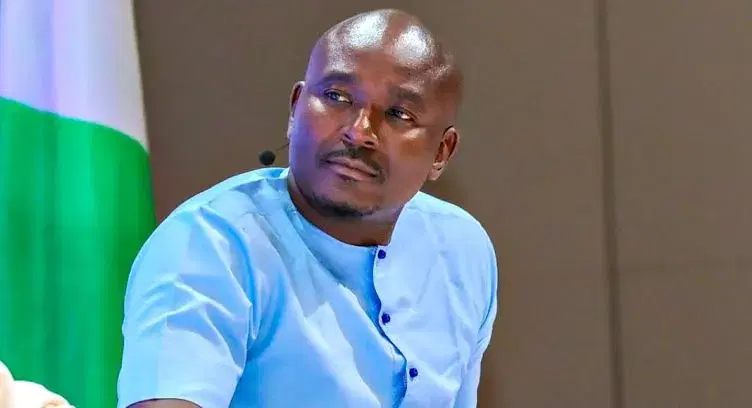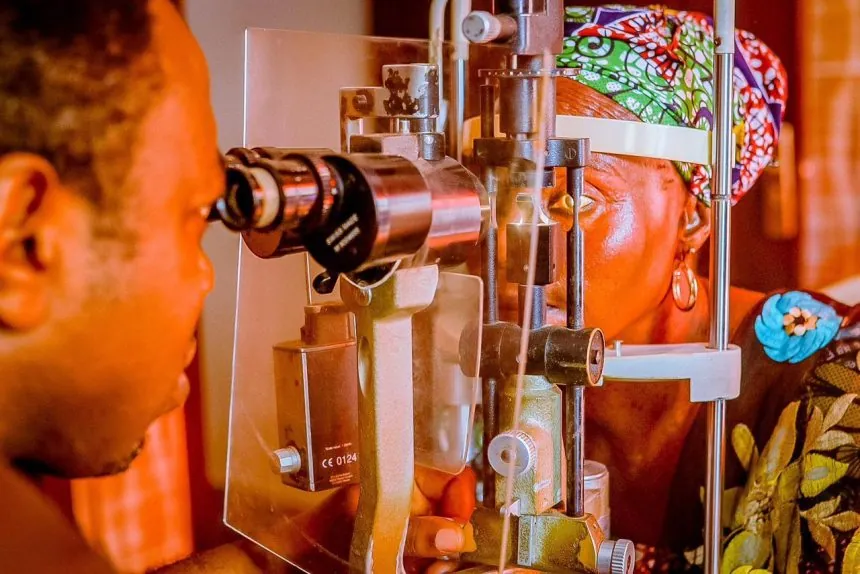In a political landscape often filled with grand promises and distant governance, it is the small, tangible acts of service that truly define a leader’s commitment to their people. The recent launch of Hon. Akin Alabi’s 2025 free eye care program is more than just a benevolent initiative; it is a powerful statement about what effective, grassroots leadership should look like in Nigeria today. This program, which aims to provide essential eye care to thousands of people in his constituency, offers a clear vision for a more responsive and compassionate form of public service.
The Human Cost of Neglect
The need for such a program cannot be overstated. In communities across Nigeria, access to basic healthcare remains a significant challenge, and eye care is often treated as a luxury rather than a necessity. For countless individuals, the inability to afford a simple eye test or a pair of glasses can have devastating consequences.
- Children struggle to learn in school.
- Adults find it difficult to work and provide for their families.
- The elderly lose their independence and connection to the world around them.
Poor vision is not just a health issue; it is a barrier to education, economic opportunity, and a dignified life. This is the reality that Hon. Akin Alabi’s program directly confronts.
A Direct and Tangible Impact
By offering free eye examinations, providing corrective lenses, and treating common eye ailments, this initiative does more than just improve sight—it restores hope and opportunity. It allows a tailor to thread a needle again, a student to see the chalkboard clearly, and a grandparent to read stories to their grandchildren. Each pair of glasses distributed is a small but profound investment in the potential of an individual and the well-being of the community. It is a practical solution to a real-world problem, delivered directly to the people who need it most, without bureaucracy or delay.

“For years, I couldn’t read my Bible or see my grandchildren’s faces clearly. This program gave me back my sight and my joy. It’s a gift of vision in every sense.”
— A beneficiary of the free eye care program
A Challenge to the Status Quo
This approach to leadership stands in stark contrast to the political norm. Too often, our leaders are preoccupied with large-scale, abstract projects that may take years to complete, if they are ever completed at all. While infrastructure and national policies are important, they can feel remote and disconnected from the daily struggles of ordinary citizens.
What sets this eye care program apart is its immediacy and its focus on the individual. It is a reminder that the true measure of a leader’s success is not the size of their projects, but the positive impact they have on the lives of their constituents.
This initiative is also a powerful critique of our national healthcare system. It highlights the significant gaps that exist and demonstrates that local leaders can and should step in to fill them. It is not enough to simply point out the problems; true leadership involves finding creative and effective ways to solve them. This program shows a leader who is not waiting for the federal government to act but is taking direct responsibility for the health and welfare of his people.

Setting a New Standard
Furthermore, the program serves as a challenge to other elected officials across the country. It sets a new standard for what it means to be a representative of the people. It asks the question: if one leader can do this, why can’t others?
It encourages a shift from a politics of empty promises to a politics of tangible results. Imagine the transformative impact if every local government chairman, every state representative, and every federal legislator launched a similar initiative tailored to the specific needs of their community. This is how real change happens—not from the top down, but from the ground up.
Conclusion: Leadership with Vision
In the end, Hon. Akin Alabi’s 2025 free eye care program is about more than just healthcare. It is about a vision for a different kind of politics—one that is rooted in service, compassion, and a genuine connection to the people. It is a reminder that leadership is not about power or position, but about making a real, positive difference in the lives of others. This is the kind of leadership Nigeria desperately needs, and it is the kind of vision that can inspire hope for a brighter future.
Stay woke. Stay tuned. Stay with AKEWE NEWS.